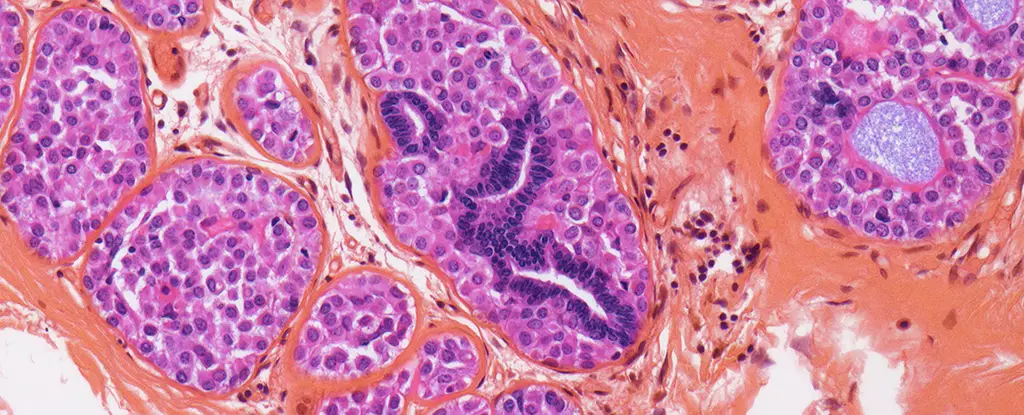The relationship between cancer treatments and cognitive decline has long been viewed negatively, with terms like “chemobrain” dominating conversations about post-cancer quality of life. Breast cancer survivors commonly report experiencing struggles with memory and concentration during and after their therapy, leading to concerns that these treatments might exacerbate or accelerate neurodegenerative diseases such as Alzheimer’s. However, recent groundbreaking research from South Korea invites a fresh perspective, uncovering that surviving breast cancer may actually correlate with a modest reduction in Alzheimer’s risk, challenging previously held assumptions.
Decoding the Unexpected Protective Signal
Analyzing health data from over 70,000 breast cancer survivors compared to nearly 180,000 cancer-free individuals, the research team identified an approximately 8% lower incidence of Alzheimer’s in the survivor group over an average of seven years. While this difference might seem numerically modest — translating roughly into a fraction less than one additional case per thousand women annually — its implications are far from insignificant. The reduced risk was most pronounced in women over 65, a demographic inherently at higher risk for dementia, suggesting that age and cumulative disease burden are key factors in this relationship.
Crucially, the protective association appeared strongest among survivors treated with radiation therapy, hinting at a potential biological mechanism beyond mere coincidence. Radiation’s established ability to modulate brain inflammation might underlie these findings, pointing toward an underexplored intersection between cancer therapies and neuroimmunology.
Rethinking Radiation: From Villain to Possible Ally
Radiation therapy’s reputation within cognitive health has been ambivalent at best. Traditionally, it has been viewed with caution due to its potential to induce neural damage. Yet, this study’s indication that radiation might confer a neuroprotective effect by reducing brain inflammation calls for a paradigm shift. Such anti-inflammatory properties could help curtail the chronic neuroinflammation observed in Alzheimer’s pathology, thereby delaying or lowering the risk of dementia onset. This perspective aligns with an emerging body of literature proposing that finely tuned immune modulation could be a key strategy in neurodegenerative disease prevention.
It is important, though, to emphasize that the study’s observational nature precludes definitive cause-and-effect conclusions. Confounding factors, such as differences in lifestyle, genetic predispositions, or access to healthcare, could influence these outcomes. Still, the data invites deeper mechanistic studies to determine how cancer treatments might be leveraged beyond oncology to safeguard long-term brain health.
Complex Interplay of Factors Governing Alzheimer’s Risk
Alzheimer’s disease risk is famously multifactorial: genetics, mental health status, diet, physical activity, and social engagement all interweave to shape individual vulnerability. The new findings contribute a novel element to this intricate equation, suggesting that surviving a serious illness like breast cancer and undergoing its associated treatments could modify the brain’s disease trajectory, possibly through immunological or neuroplasticity-related pathways.
What remains unclear is the durability of this protective effect, as the risk reduction was not sustained indefinitely. It faded as more time elapsed post-treatment, indicating that whatever beneficial changes radiation therapy or cancer survival prompts, they may be transient or require reinforcement.
A Call for Nuanced Understanding and Future Research
These results disrupt the simplistic narrative that cancer treatments only degrade cognitive function, highlighting a more nuanced reality in which certain therapies might inadvertently confer long-term neurological benefits. This complicates the messaging around cancer survivor care, underscoring the need for personalized follow-ups that balance monitoring for cognitive challenges with recognition of potential protective effects.
Going forward, it is imperative to dissect which components of breast cancer treatments — radiation, chemotherapy, hormonal therapy — play distinct roles in influencing neurodegeneration. Moreover, investigations should explore how survivor characteristics, such as age at diagnosis and genetic background, moderate these outcomes.
Ultimately, the study serves as a potent reminder of the human body’s complexity and its capacity to adapt in unexpected ways. While cancer diagnosis and treatment undoubtedly present substantial challenges, the possibility that they might also engage biological pathways that reduce Alzheimer’s risk is an intriguing insight that could inspire innovative therapeutic approaches bridging oncology and neurology.

